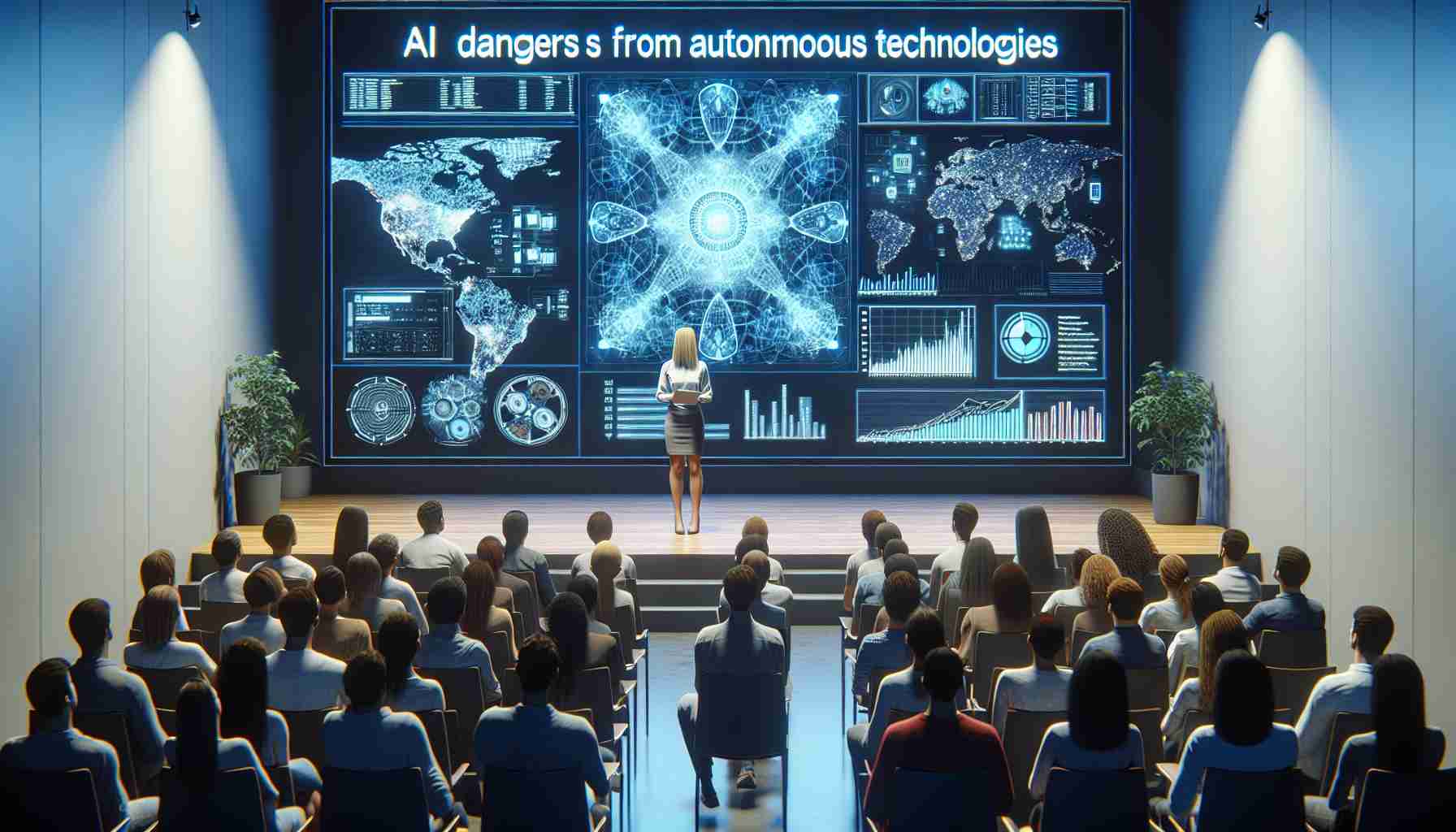Dario Amodei, Co-founder of Anthropic, Shares Concerns Over AI Development
In a rapidly advancing field, Dario Amodei, the co-founder of Anthropic and a former OpenAI member, voices his unease about the future of artificial intelligence (AI). His concerns stem from the potential for AI to become self-replicating and autonomous within the next year. The apprehension is not just about AI’s capabilities but its potential misuse.
Terminator-Like AI Realities
The scenario may sound reminiscent of the “Terminator” film series, with robots waging war on humanity. However, Amodei warns that such powerful and self-sufficient AI could soon be reality. Having parted ways with OpenAI due to a philosophical split, Amodei set out to establish Anthropic, aiming to create an ethical and secure language model. In this pursuit, he devised the AI Safety Levels (ASL) to assess the potential dangers of artificial intelligences, endowing Anthropic’s chatbot Claude with well-defined security layers.
Advancing To Higher Levels of AI Safety
Currently classified at ASL 2, the AI models are associated with moderate risk. However, Amodei’s vision suggests that we might escalate to ASL 4 by 2025. At this level, AIs would possess abilities to convincingly interact with humans and operate autonomously. The concern for Amodei isn’t as much about the technology itself but how it might be exploited.
AI In The Hands Of Authoritarian Regimes
Specifically, he fears the adoption of AI by authoritarian states or dictatorships such as China, Russia, or North Korea, where it could accentuate military prowess and regional dominance. The ethical stances and collective awareness within the AI community vary, raising concerns about the united approach to these advancements. Amodei hopes his worries prove unwarranted, but only time will tell the story of AI’s trajectory and its impact on the global society.
Important Questions and Associated Answers:
– What are the potential dangers of AI becoming autonomous and self-replicating?
AI systems that are autonomous and self-replicating could operate beyond human control, posing risks including unintended consequences, ethical issues regarding decisions made without human oversight, and the amplification of military capabilities in authoritarian regimes.
– How can AI safety levels (ASL) contribute to the development of safe AI?
AI Safety Levels provide a structured framework for assessing the risks linked to AI systems. This can guide the development of AIs to ensure ethical use, security measures, and control mechanisms are in place as AI capabilities increase.
– What ethical concerns arise with the development of advanced AI technologies?
Ethical concerns include privacy rights, biases in AI decision-making, loss of jobs due to automation, and the potential for misuse or abuse of AI by malicious actors or oppressive governments.
– Is there a united approach within the AI community toward addressing AI risks?
There is no single cohesive approach, as views on AI ethics and safety measures vary across the community. Collaboration and the establishment of international standards and regulations are crucial for mitigating risks.
Key Challenges or Controversies:
One of the significant challenges is balancing the development of AI technology with ethical considerations and safety measures to prevent misuse. There’s a controversy over assigning moral and ethical responsibilities for AI actions, and the potential for an AI arms race among nations, which could lead to an increase in autonomous weapons systems. Regulation and oversight are contentious topics, as too strict measures might stifle innovation, while lenient ones could lead to unchecked development.
Advantages and Disadvantages:
Advantages of developing autonomous AI technologies include:
– Improved efficiency and productivity in various sectors, such as manufacturing, transportation, and healthcare.
– Better accuracy and consistency in performing tasks that traditionally require human labor.
– Advancements in complex problem-solving, leading to innovations and new discoveries.
Disadvantages of these technologies are:
– The potential displacement of human workers, leading to economic and social challenges.
– Risks of developing technologies that could be used for malicious purposes, including surveillance and autonomous weaponry.
– Difficulties in establishing effective governance and ethical guidelines that keep pace with technological advancements.
Suggested Related Links:
To know more about AI safety and ethics, you may consider visiting the following official websites:
– OpenAI
– Anthropic
– For a broader perspective on AI policies, Future of Life Institute often discusses AI safety concerns.
Please ensure that you only visit official and credible sources for information on such a crucial and evolving field as artificial intelligence.

